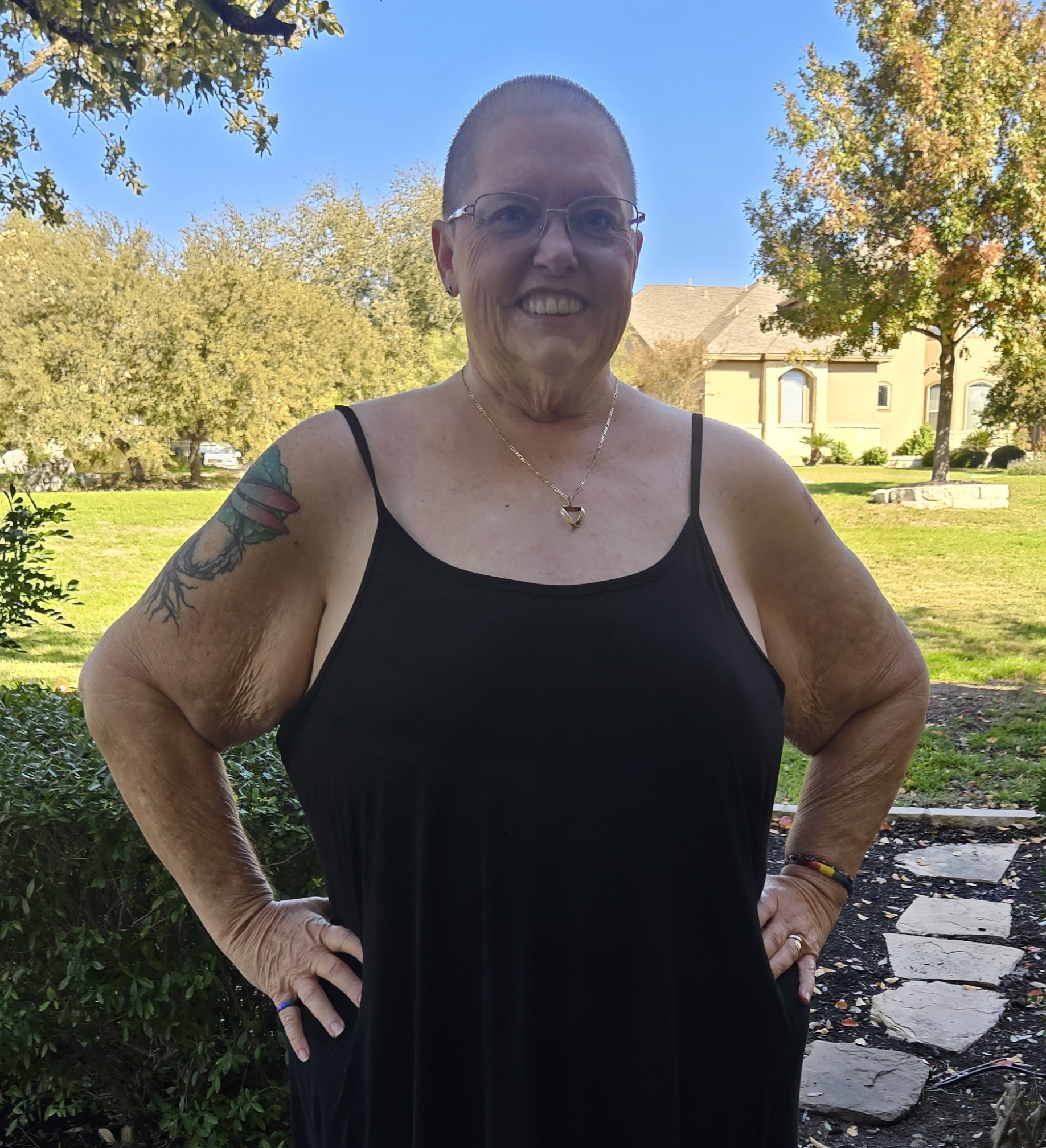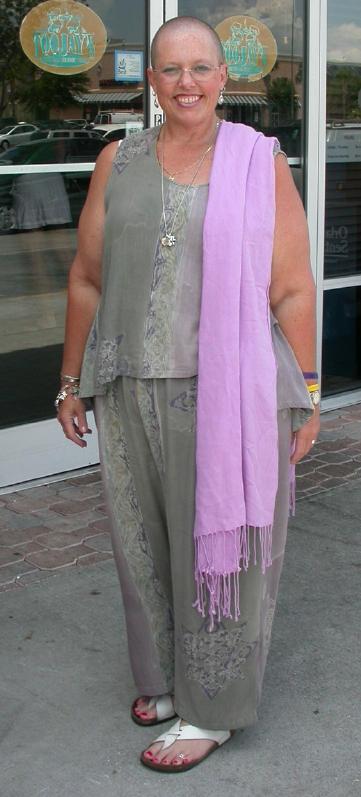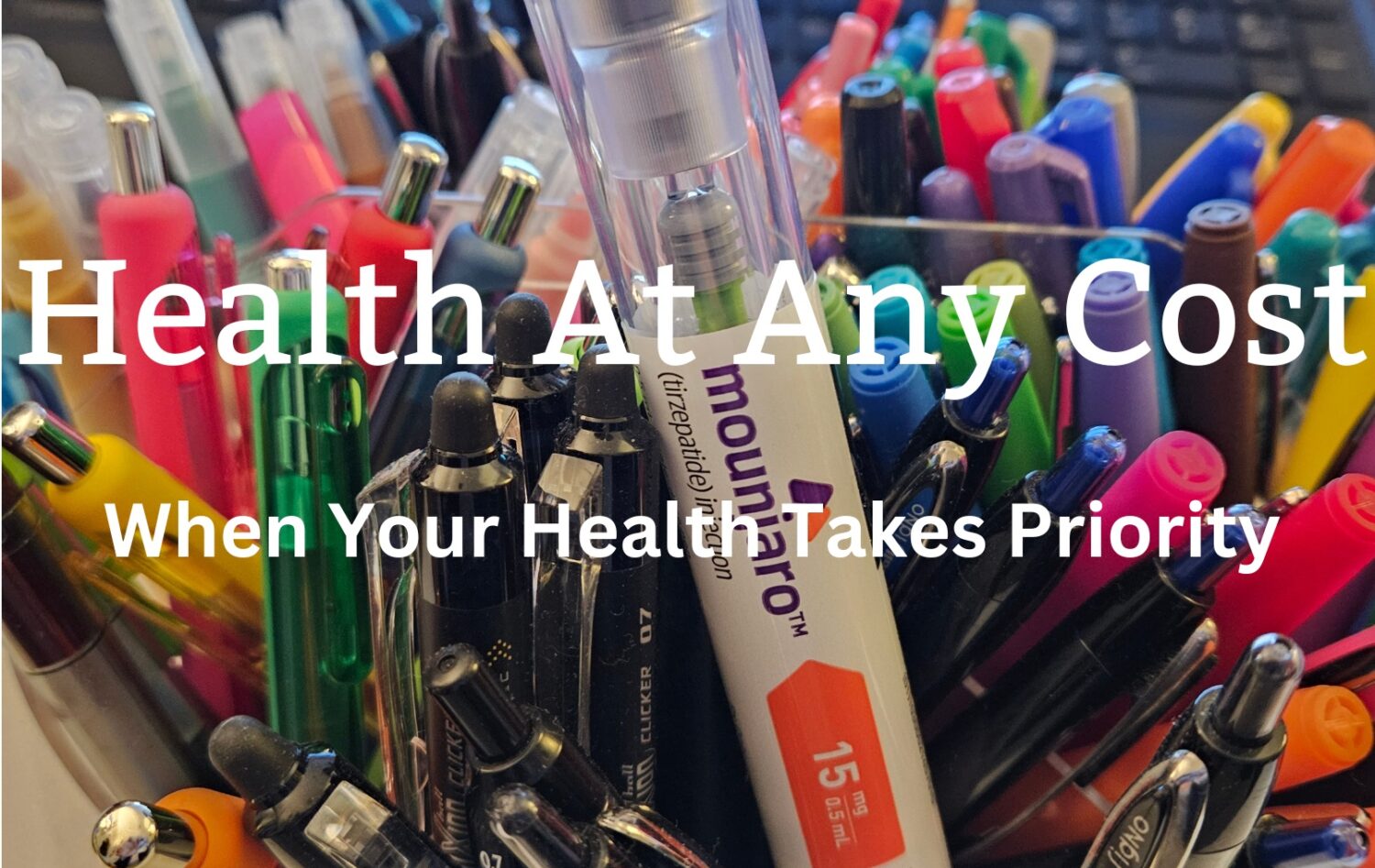Even though I lost 190 pounds in about a year after the RNY Gastric Bypass in 2001, I do not have any recollection of seeing myself differently in a mirror or in a picture. I remember feeling differently. “Will I fit through that turnstile? Are you sure? Will I break the seat?”
So as I hit the minus 170 pound point a couple of days ago, when I looked in the mirror, I saw my enormously puffy body. It was the one I had had for over a decade and much of my adult life. Blinking, I re-focused and still saw the same fat me in the reflection.
My daughter took pics of me and when I looked at them, it was as if I was holding one of those lenticular prints that shifts images when you tilt it one way or the other. Was I fat? Fleshy? Was that really all my draping skin? (Sagging doesn’t begin to describe it!) Is something wrong with the camera angle? Why do I look so strangely thin?

Yeah, my second and third under-chins sag, too.
Body Dysmorphia Disorder?
This is the typical label put on what I described above, but I disagree with it completely. The DSM-5 can be referenced for the complete psychiatric description of BDD, but here are snippets of the criteria. I absolutely do not fit the definition of BDD. I say this because the people I’ve talked to or seen talking about this odd juxtaposition of what we look like and what we feel like do not fit the criteria either. (Not that I am a clinician, but still, it’s pretty obvious.)
Appearance preoccupations: The individual must be preoccupied with one or more nonexistent or slight defects or flaws in their physical appearance. “Preoccupation” is usually operationalized as thinking about the perceived defects for at least an hour a day
Repetitive behaviors: To qualify for a diagnosis of BDD, at some point during the course of the disorder, the individual must perform repetitive, compulsive behaviors in response to the appearance concerns.
Clinical significance: The preoccupation must cause clinically significant distress or impairment in social, occupational, or other important areas of functioning.
Does this sound like what I described? Does this sound like others who don’t recognize themselves in window reflections? Not at all. Might our brains just be a tad slow catching up to the wild and crazy changes? I say, “Yes!”
“Phantom Fat”: The Worst Name Ever
I use the word “fat” plenty, but in the description of myself. If someone prefers that adjective, I will use it for them, too. (Similar to the “they/them” issue.) But to have a name of a challenging phenomenon be called “Phantom Fat?” That is just weird.
But, the description of what it is fits what the experience is like:
Some people who have lost weight have trouble embracing their new, slimmer shapes. They may still perceive themselves as very heavy, even when the reflection in the mirror reveals a much smaller person.
This phenomenon is sometimes called “phantom fat” or “phantom fat syndrome.” The medical term is body dysmorphic disorder.
“‘Phantom Fat’ Can Linger After Weight Loss” has a full explanation that doesn’t mention body dysmorphia at all. It comes from a Bariatric Surgery site, so they would know. This is what I needed! I was feeling like I must be the only person not obsessed with a body part or checking myself in a mirror at least an hour a day.
“Body Dysmorphia” isn’t the right term and “Phantom Fat” is just gross. I think we need some new words instead of those ghastly ones.
I Suggest “Body Integration Syndrome”
I prefer something like this: Body Integration Syndrome – “The path to integrating the larger body memory with the smaller body reality.”
The Thesaurus and I also suggest:
Distorted: Phantom Distortion Syndrome – Medical people would love the word “Distorted,” but it’s my least fave of all.
Curvilinear
cur·vi·lin·e·ar
/ˌkərvəˈlinēər/
adjective
contained by or consisting of a curved line or lines.
“these designs employ flowing, curvilinear forms”
The sentence I would devise:
Curvilinear Body Syndrome: “The ability to see one’s body as it really is after losing a great deal of weight. It’s a curvilinear process.”
Plus I like the word. It’s sexy.
Aren’t those much better than the dreadful “Phantom Fat?”
What About You?
Do you have body integration issues, too? How are you working on them? I have a few ideas to help with integration in Weight and Social Anxiety. Let me know your experiences and we can learn from each other.
Below is a picture of how I look in my heart. I wonder if I ever will look that way again.


